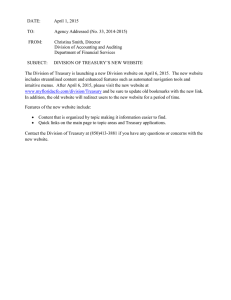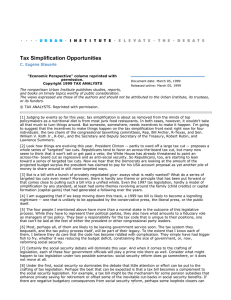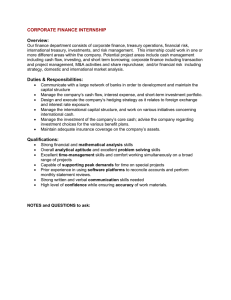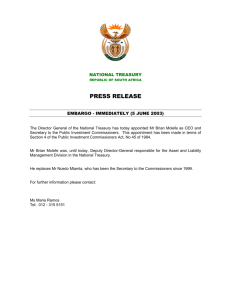Summers' Time: Promoting Good Tax Policy (Part 3 of 5)
advertisement
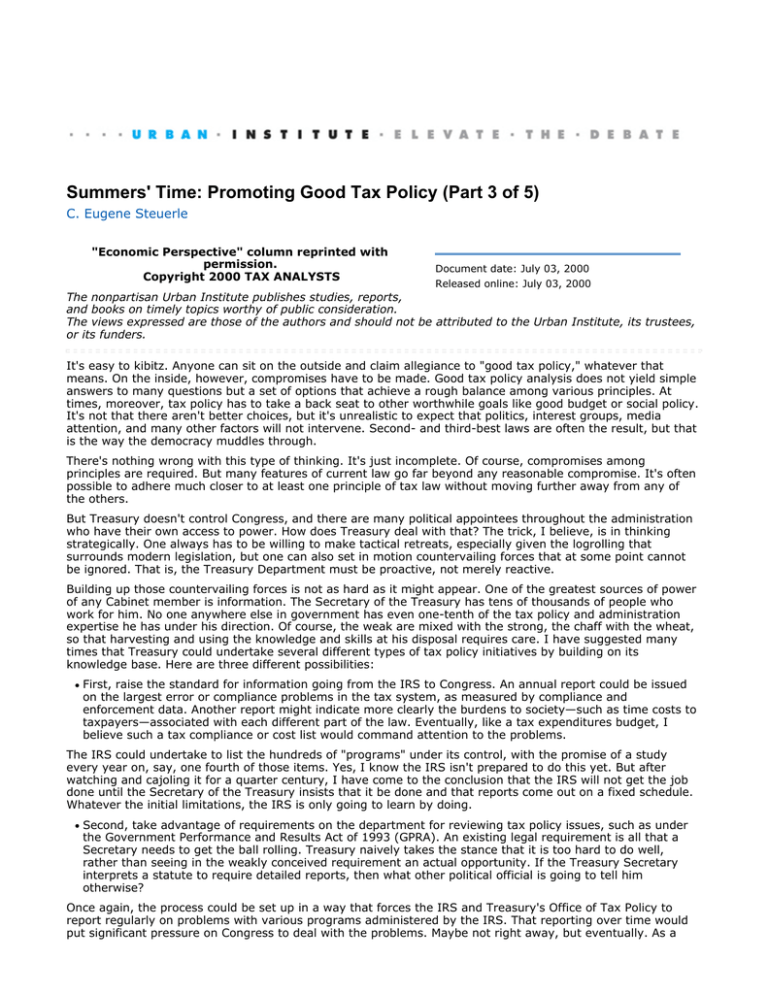
Summers' Time: Promoting Good Tax Policy (Part 3 of 5) C. Eugene Steuerle "Economic Perspective" column reprinted with permission. Copyright 2000 TAX ANALYSTS Document date: July 03, 2000 Released online: July 03, 2000 The nonpartisan Urban Institute publishes studies, reports, and books on timely topics worthy of public consideration. The views expressed are those of the authors and should not be attributed to the Urban Institute, its trustees, or its funders. It's easy to kibitz. Anyone can sit on the outside and claim allegiance to "good tax policy," whatever that means. On the inside, however, compromises have to be made. Good tax policy analysis does not yield simple answers to many questions but a set of options that achieve a rough balance among various principles. At times, moreover, tax policy has to take a back seat to other worthwhile goals like good budget or social policy. It's not that there aren't better choices, but it's unrealistic to expect that politics, interest groups, media attention, and many other factors will not intervene. Second- and third-best laws are often the result, but that is the way the democracy muddles through. There's nothing wrong with this type of thinking. It's just incomplete. Of course, compromises among principles are required. But many features of current law go far beyond any reasonable compromise. It's often possible to adhere much closer to at least one principle of tax law without moving further away from any of the others. But Treasury doesn't control Congress, and there are many political appointees throughout the administration who have their own access to power. How does Treasury deal with that? The trick, I believe, is in thinking strategically. One always has to be willing to make tactical retreats, especially given the logrolling that surrounds modern legislation, but one can also set in motion countervailing forces that at some point cannot be ignored. That is, the Treasury Department must be proactive, not merely reactive. Building up those countervailing forces is not as hard as it might appear. One of the greatest sources of power of any Cabinet member is information. The Secretary of the Treasury has tens of thousands of people who work for him. No one anywhere else in government has even one-tenth of the tax policy and administration expertise he has under his direction. Of course, the weak are mixed with the strong, the chaff with the wheat, so that harvesting and using the knowledge and skills at his disposal requires care. I have suggested many times that Treasury could undertake several different types of tax policy initiatives by building on its knowledge base. Here are three different possibilities: First, raise the standard for information going from the IRS to Congress. An annual report could be issued on the largest error or compliance problems in the tax system, as measured by compliance and enforcement data. Another report might indicate more clearly the burdens to society—such as time costs to taxpayers—associated with each different part of the law. Eventually, like a tax expenditures budget, I believe such a tax compliance or cost list would command attention to the problems. The IRS could undertake to list the hundreds of "programs" under its control, with the promise of a study every year on, say, one fourth of those items. Yes, I know the IRS isn't prepared to do this yet. But after watching and cajoling it for a quarter century, I have come to the conclusion that the IRS will not get the job done until the Secretary of the Treasury insists that it be done and that reports come out on a fixed schedule. Whatever the initial limitations, the IRS is only going to learn by doing. Second, take advantage of requirements on the department for reviewing tax policy issues, such as under the Government Performance and Results Act of 1993 (GPRA). An existing legal requirement is all that a Secretary needs to get the ball rolling. Treasury naively takes the stance that it is too hard to do well, rather than seeing in the weakly conceived requirement an actual opportunity. If the Treasury Secretary interprets a statute to require detailed reports, then what other political official is going to tell him otherwise? Once again, the process could be set up in a way that forces the IRS and Treasury's Office of Tax Policy to report regularly on problems with various programs administered by the IRS. That reporting over time would put significant pressure on Congress to deal with the problems. Maybe not right away, but eventually. As a minor example, the Office of Tax Analysis issued a report on the telephone excise tax more than 10 years ago; today that report is used to justify the useful simplification of eliminating the tax. One doesn't have to agree with every report to understand the pressures applied by this type of process. Finally, announce an even grander initiative. Create a group whose job it would be to re-codify the tax system as a whole, with primary emphasis on simplification. I play somewhat loosely with the definition of "codify" here, but we need a term that will catch the necessary attention while going beyond the call for "reform," which has become all but meaningless since every bill is called a reform. Here are some of the steps. Gather together a few top scholars who have a sense of what the job would mean and require. Involve those members of Congress from both parties who are truly interested in a bipartisan effort. Call on members of the tax sections of the American Bar Association and the American Institute of Certified Public Accountants. Put Tax Policy personnel to work on helping to staff the group, thus ensuring that most tax policy principles will be given considerable weight. Recognize the current efforts of the Joint Committee on Taxation to study simplification options, and work closely with them as well. Set the group up carefully so that its suggestions receive attention and cannot be ignored. Too many problems of complexity and administration are growing in magnitude for Treasury to sit on the sidelines much longer. The dramatic and largely unintended growth in filers for the Alternative Minimum Tax is only one example. But every problem like that is really an opportunity to redefine and redirect tax policy. The three procedural strategies suggested above can easily be amended or replaced with substitutes. But some plan must be put in place. Treasury's knowledge and skills are now kept too hidden within the department itself. That effectively weakens the Secretary of the Treasury by putting his greatest weapons to the side while strengthening those without much interest in good tax policy per se. While the Secretary must choose tactical battles carefully, no one is in better position to make a strategic move, and no time is better than now to set in motion forces that likely could not be ignored by any future president or Congress, whatever the political party. Other Publications by the Authors C. Eugene Steuerle Usage and reprints: Most publications may be downloaded free of charge from the web site and may be used and copies made for research, academic, policy or other non-commercial purposes. Proper attribution is required. Posting UI research papers on other websites is permitted subject to prior approval from the Urban Institute—contact publicaffairs@urban.org. If you are unable to access or print the PDF document please contact us or call the Publications Office at (202) 261-5687. Disclaimer: The nonpartisan Urban Institute publishes studies, reports, and books on timely topics worthy of public consideration. The views expressed are those of the authors and should not be attributed to the Urban Institute, its trustees, or its funders. Copyright of the written materials contained within the Urban Institute website is owned or controlled by the Urban Institute. Source: The Urban Institute, © 2012 | http://www.urban.org
